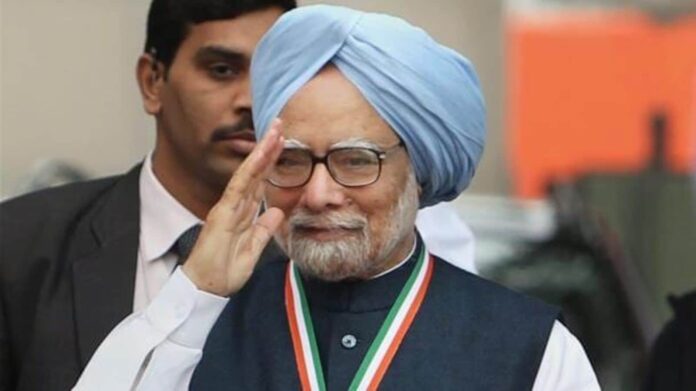Dr. Manmohan Singh’s passing away is truly the end of an era. From extremely humble beginnings, a partition refugee, he rose to great eminence through the dint of hard work and perseverance.
In some ways his life was a parallel to the rise of India, from an impoverished and illiterate nation under British rule before independence, to becoming the fifth largest and dynamic economy in the world today.
As an academic high achiever, he studied at Cambridge and Oxford having won scholarships and came back to teach at Punjab University and later at the prestigious Delhi School of Economics. At Cambridge, he topped the Economics Tripos and was awarded the Adam Smith prize, being one of only four Indians who have ever won that prize.
He also received an honorary law degree from Cambridge. His PhD thesis at Oxford was on India’s export prospects, and his 1964 book India’s Export Trends and Prospects for Self-Sustained Growth was against the prevailing inclination toward export pessimism.
It took another nearly three decades, for India to fully embrace openness and adopt exports also as a driver of economic growth.
The economic reforms unleashed in 1991, with dismantling of the Licence Raj, deregulation of banking and opening up of the economy for trade and foreign investment, are some of Singh’s most prominent legacies as finance minister.
He quoted Victor Hugo in his maiden budget speech on 24 July 1991, saying “No power on earth can stop an idea whose time has come.”
That idea was the emergence of India as an economic power, driven by her youthful demography, entrepreneurial dynamism, all unleashed by the bold reforms.
That those reforms have sustained for so long, in direction if not speed, is a testimony to their validity. This was because the audacity of the reforms was buttressed by Finance Minister Manmohan Singh’s consultative style and co-opting of diverse views.
He set up committees to suggest reforms in banking, insurance and taxation, chaired by appropriate eminent persons. The landmark reports of these committees became the blueprint for the roadmap ahead.
Singh brought an unusual combination of skills as an economist-scholar, administrator, regulator and also as a politician.
His career graph went from being a professor in the 1970s and Governor of the Reserve Bank of India and head of the Planning Commission in the 1980s to being finance minister in the 1990s and Prime Minister for a decade-long two terms after the turn of the century.
During his term as head of the government, India clocked the highest ever growth rates and joined the league of $2 trillion economies. No other economist comes even close to these spectacular achievements, featuring a major career leap in every decade.
He served as a member of Parliament for 33 years, with great dedication and commitment, including as leader of the opposition in the Rajya Sabha. His rise from ordinary beginnings to a giant stature is a tribute to the genius of India’s democracy.
He had more than his share of strident critics, but he never hesitated to listen, engage, debate and even confront them. Above all, he was an exemplar of decency in public life. Even his critics applauded him for his dedication, sincerity, hard work, scholarship, decency and incorruptibility.
The country has lost a gentleman leader, a scholar and a decent human being. As his record will assure, history will indeed judge him more kindly than his contemporaries.
The author is a Pune-based economist
#Ajit #Ranade #Manmohan #Singh #Scholar #gentleman #great #son #India
